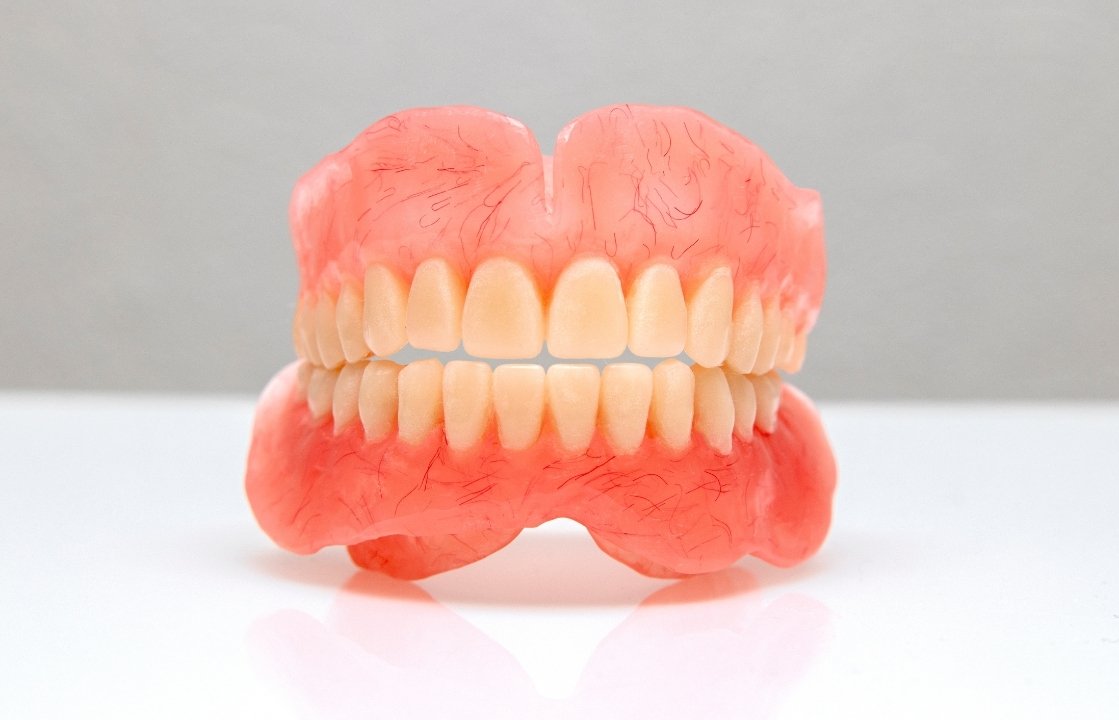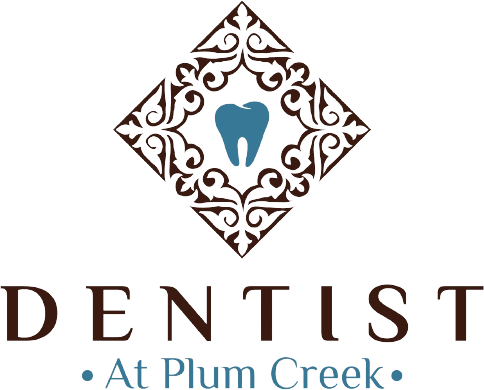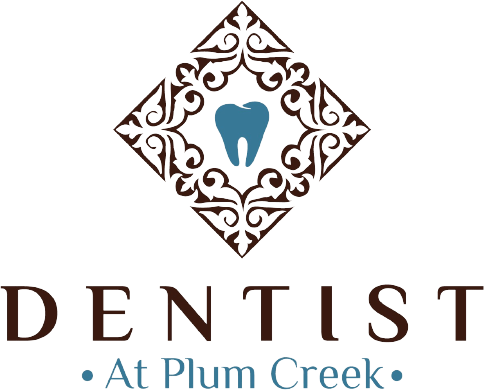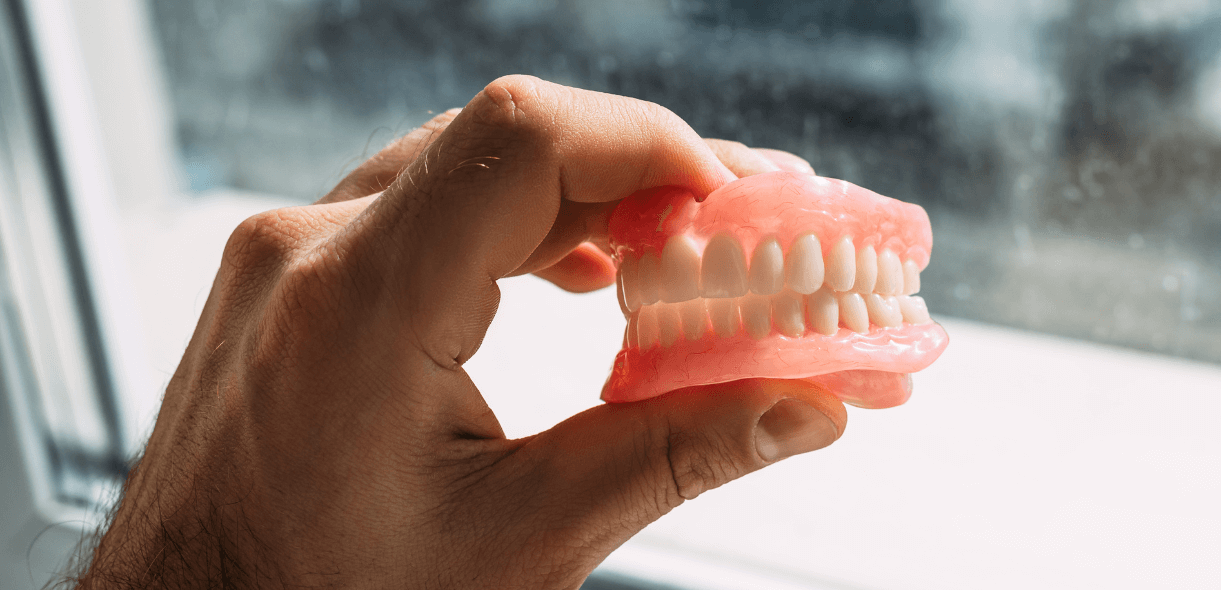$99 New Patient Special - Includes Exam and X-Rays.
The Complete Guide to Dentures: Types, Benefits, and Care Tips for Kyle People

By Dentist At Plum Creek Kyle
Dentures are a common and effective solution for people who have lost their teeth due to aging, injury, or other dental issues. For Kyle people, these solutions can restore their smile’s function and appearance. This guide will explore the different types of dentures available, their benefits, and important care tips to ensure long-lasting results.
By the end, readers will understand how these prosthetic devices can improve their quality of life and how to maintain them for maximum comfort and longevity.
What Are Dentures?
Dentures are removable dental appliances designed to replace missing teeth. They restore the function of chewing and speaking, as well as improve the appearance of your smile. These solutions are made from materials like acrylic or porcelain and custom-fitted to each individual’s mouth.
In addition, these options become a necessity for many people after losing teeth due to various causes like age, trauma, or poor oral health. Without proper tooth replacement, the remaining teeth may shift, and the face may sag, leading to further complications. Dentures help prevent these issues by filling in the gaps left by missing teeth.
Several types of dentures are available, including:
- complete
- Partial
- implant-supported
- flexible
- immediate and
- custom.
Each type offers specific benefits, depending on the individual’s needs and preferences. We will explore these types in detail to help Kyle people choose the best option for their needs.
Types of Dentures
- Complete Dentures
Complete ones are used when all teeth in the upper or lower jaw are missing. They fit over the gums and are typically held in place by natural suction or denture adhesives. Moreover, these options are custom-made to match the natural contour of the mouth, ensuring a comfortable fit.
Pros:
- Restores full function to the mouth.
- Improves facial aesthetics by filling out the jawline.
- Relatively affordable.
Cons:
- It can feel bulky for some people.
- It may require adjustment over time as the jawbone changes.
- Partial Dentures
Partial options are used when some natural teeth remain. They are designed to fill in the gaps created by missing teeth and are held in place by metal clasps or precision attachments that connect to existing teeth.
Pros:
- Less intrusive than complete ones.
- Preserve remaining natural teeth.
- Easier to adjust.
Cons:
- Requires regular cleaning to prevent plaque buildup.
- It may affect speech or comfort initially.
- Implant-Supported Dentures
Implant-supported ones are anchored to dental implants surgically placed in the jawbone. They offer a more stable and long-lasting solution than traditional removable options. They are commonly used when natural teeth have been lost, and the jawbone is healthy enough to support the implants.
Pros:
- More stable and comfortable.
- It helps maintain jawbone health.
- Long-lasting.
Cons:
- It is expensive and requires a longer treatment time.
- Requires a healthy jawbone for implants to be effective.
- Flexible Dentures
Flexible options are made from a soft, durable material that provides extra comfort and flexibility. They are less rigid than traditional ones and are ideal for individuals with sensitive gums.
Pros:
- It is more comfortable than traditional ones.
- Flexible and lightweight.
- Great for sensitive gums.
Cons:
- It can be more expensive.
- It may wear out faster than other types.
- Immediate Dentures
Immediate options are placed immediately after tooth extraction. They help protect the gums and allow patients to adjust to these prosthetic devices after losing teeth. Moreover, these are temporary and often require adjustments after the gums heal.
Pros:
- Provides immediate replacement after extractions.
- It helps with healing and prevents discomfort.
Cons:
- Requires adjustments as the gums heal and shrink.
- Not a long-term solution.
- Custom Dentures
Custom options are made to fit a person’s mouth’s unique shape and size. They are often more aesthetically pleasing and provide a more natural look and feel than standard ones.
Pros:
- Comfortable and aesthetically pleasing.
- Tailored to individual needs.
Cons:
- It can be more expensive than standard options.
- It may take longer to create.
Benefits of Dentures
- Restores Functionality
Dentures in Kyle help restore the ability to eat and speak comfortably, improving oral function. People often need help chewing or pronouncing certain words with their teeth, and these solutions provide the support needed for normal activities. - Improved Aesthetics
One of the main reasons people choose these prosthetic devices is to restore their smile. Dentures fill out the face, making individuals appear younger and more confident. They give people back their natural appearance and prevent the sagging or hollowing of the cheeks that can happen when teeth are missing. - Boosted Confidence
For many Kyle people, losing teeth can affect their self-esteem. These solutions help you regain confidence by providing a natural-looking smile. People can interact socially and professionally without worrying about teeth, significantly boosting mental well-being. - Improved Health
These prosthetic devices improve the appearance and prevent further oral health issues. When you replace missing teeth, the remaining natural teeth are less likely to shift, and you can preserve the jawbone. Moreover, this can prevent bite problems and gum disease, which could lead to more serious health issues. - Cost-Effective Option
Compared to alternatives like dental implants or bridges, these options offer a more affordable solution. While they may require occasional adjustments, they remain a practical option for those looking for an immediate and cost-effective way to restore their smile.
How to Care for Your Dentures?
- Cleaning Routine
Daily cleaning is essential to maintain the hygiene of your dentures. Use a soft-bristled brush to clean the surface and remove food particles gently. In addition, avoid using toothpaste, as it can scratch the denture surface. Instead, use a denture-specific cleaner. - Storage Tips
When not in use, store these prosthetic devices in a container filled with water or a denture solution to prevent them from drying out or losing their shape. Never leave them exposed to air, as this can cause warping. - Regular Check-ups
Furthermore, you must schedule regular dental visits for check-ups and adjustments. As the mouth naturally changes, these prosthetic devices may need relining or resizing over time. A dentist will also ensure that the dentures remain in good condition. - Avoiding Damage
In addition, avoid dropping these prosthetic devices, as they can break easily. Also, refrain from eating hard or sticky foods, which could damage them or make them uncomfortable to wear. - Managing Discomfort
Minor discomfort may occur, especially when you wear new ones. If irritation or sores develop, see your dentist for adjustments. If discomfort persists, it may be a sign that the dentures need to be refitted.
In conclusion, dentures offer a reliable, cost-effective solution for replacing missing teeth. With various types available, including complete, partial, and implant-supported dentures, Kyle people can choose the best option to restore their smile and oral function. Proper care is crucial to maintaining the longevity and comfort of these prosthetic devices, so be sure to follow cleaning routines, store them properly, and visit your dentist regularly.
If you think dentures are the right solution, consult our dental professionals to explore your options and get a custom solution that meets your needs.





